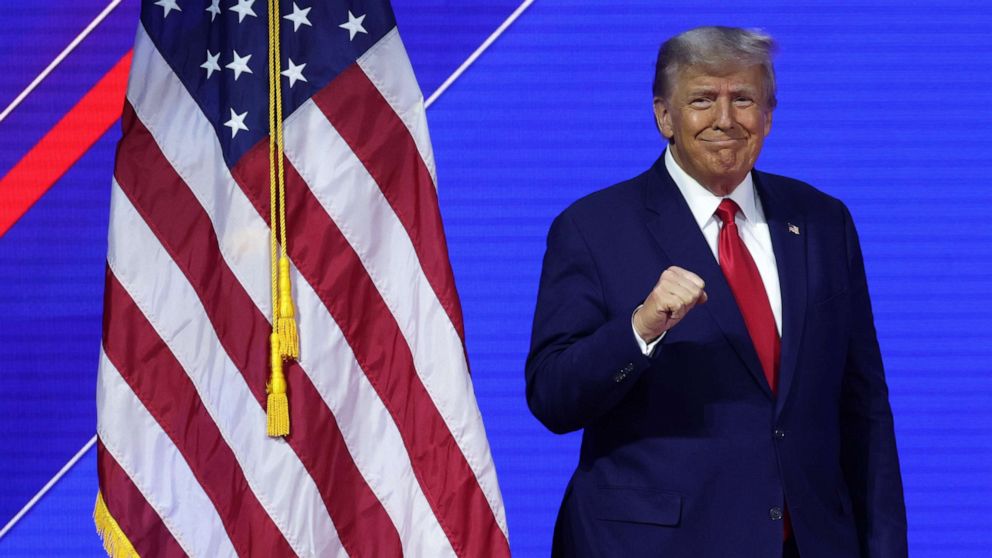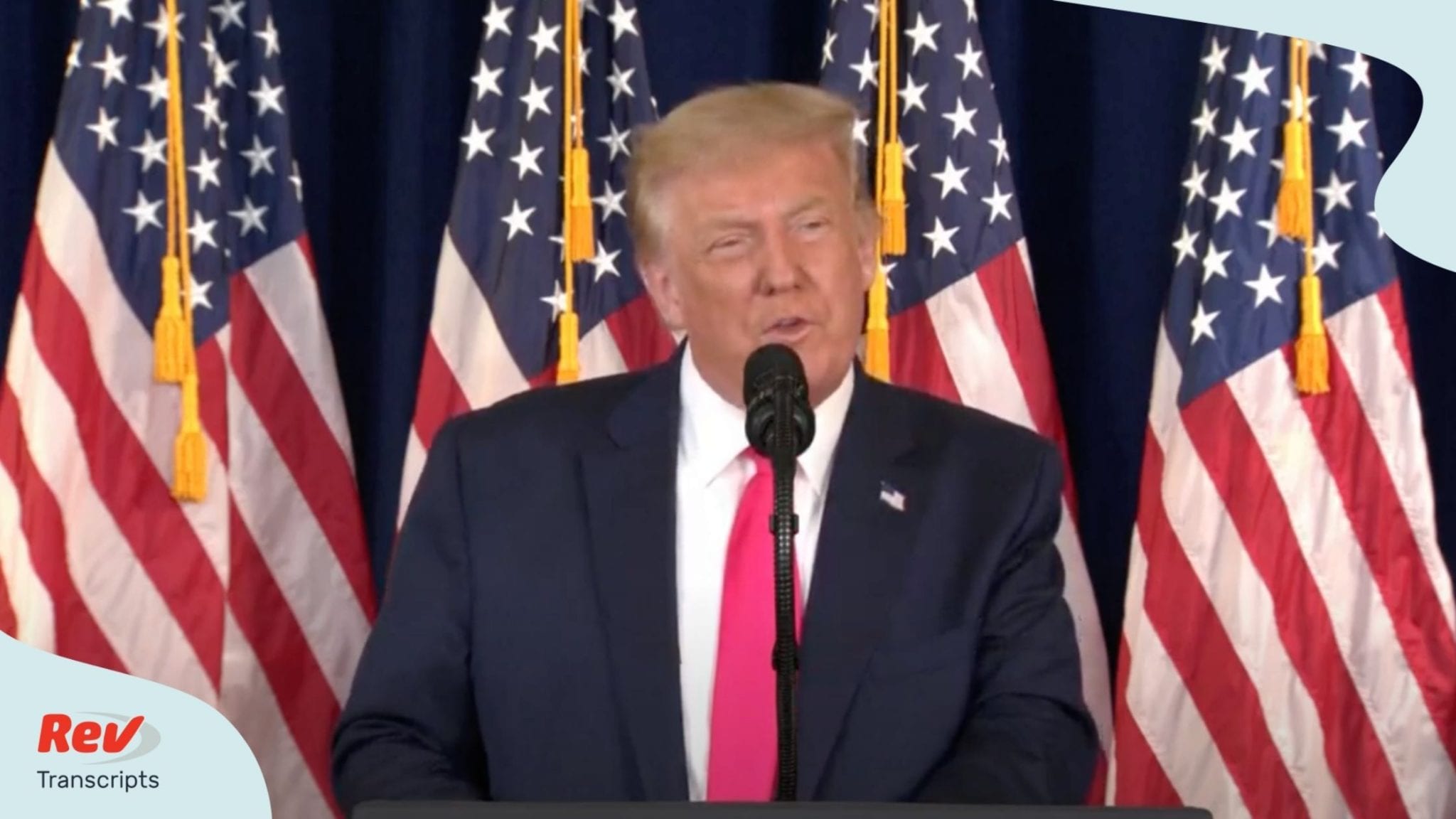Key Themes and Messages

Trump conferences, often referred to as rallies or campaign events, are characterized by a specific set of themes and messages that resonate with his supporters. These events serve as platforms for Trump to articulate his political ideology, connect with his base, and mobilize them for future actions.
The “America First” Agenda
The “America First” agenda is a central theme that permeates Trump’s rhetoric at these conferences. It emphasizes putting American interests above those of other countries, a concept often associated with economic nationalism and protectionism.
- Trade: Trump frequently criticizes trade deals, such as the North American Free Trade Agreement (NAFTA), arguing they have led to job losses in the United States. He advocates for renegotiating or withdrawing from these agreements to protect American industries and workers.
- Immigration: Trump’s rhetoric on immigration often centers around building a wall along the U.S.-Mexico border, restricting immigration from certain countries, and enforcing stricter border security measures. He argues that these measures are necessary to protect American jobs and national security.
- Foreign Policy: Trump has often criticized the United States’ involvement in international organizations and alliances, arguing that they are not in America’s best interests. He has also taken a more transactional approach to foreign policy, seeking to negotiate bilateral deals that benefit the United States.
The “Culture Wars”
Trump often utilizes rhetoric that appeals to cultural anxieties and divisions within American society. He frequently targets the political correctness of the left, emphasizing traditional values and a perceived threat to American culture.
- Social Issues: Trump’s stance on social issues like abortion, gun control, and LGBTQ+ rights aligns with conservative values. He frequently speaks about these issues in terms of protecting traditional values and the “American way of life.”
- Identity Politics: Trump has been criticized for using divisive rhetoric that appeals to racial and ethnic anxieties. He has often made statements that have been interpreted as racist or xenophobic, which resonate with some segments of his base.
- “Fake News”: Trump frequently attacks the media, labeling them as “fake news” and accusing them of bias against him. This rhetoric has contributed to a climate of distrust in traditional media institutions and has further polarized the political landscape.
The “Outsider” Narrative
Trump often presents himself as an outsider who is fighting against the corrupt establishment in Washington, D.C. This narrative resonates with voters who are disillusioned with the political system and feel that their voices are not being heard.
- Anti-Establishment Rhetoric: Trump frequently criticizes the “swamp” of Washington, D.C., arguing that it is filled with corrupt politicians who are more concerned with their own interests than those of the American people.
- “Drain the Swamp”: This slogan has become a central part of Trump’s messaging, symbolizing his commitment to fighting corruption and holding the establishment accountable.
- Populist Appeal: Trump’s rhetoric often appeals to the working class and those who feel left behind by globalization and economic changes. He promises to bring back jobs, restore American manufacturing, and fight for the interests of the “forgotten man.”
The Role of Supporters and Attendees: Trump Conference

Trump conferences, often held in large venues and attracting thousands of attendees, offer a platform for his supporters to gather, engage with his message, and reinforce their shared political beliefs. These events provide a glimpse into the motivations, demographics, and dynamics of Trump’s base, revealing insights into the power of his appeal and the role of these gatherings in shaping political discourse.
Demographics and Motivations of Attendees, Trump conference
The demographics of Trump conference attendees often reflect the broader composition of his support base. While a significant portion are white, working-class Americans, there is also a diverse range of attendees, including those from rural areas, suburban communities, and urban centers. Attendees are often motivated by a desire to express their support for Trump’s policies, engage with like-minded individuals, and feel a sense of belonging within a community that shares their values.
Dynamics and Interactions within the Conference Environment
Trump conferences are characterized by a palpable sense of energy and enthusiasm. Attendees often wear Trump-branded merchandise, cheer loudly during speeches, and participate in chants and slogans. This collective energy creates a powerful atmosphere of shared identity and purpose. The events provide a platform for attendees to connect with each other, exchange ideas, and strengthen their political convictions. The shared experience of attending a Trump conference can further solidify their support for his message and reinforce their sense of belonging to a movement.
Impact of Trump Conferences on Political Engagement and Activism
Trump conferences can serve as catalysts for political engagement and activism among his supporters. The events provide a platform for them to hear directly from Trump, learn about his policies, and connect with like-minded individuals. This shared experience can inspire them to take action, such as volunteering for his campaign, donating to his causes, or participating in political rallies and protests.
The Trump conference was a whirlwind of speeches and promises, but one thing that stuck with me was the discussion about global leadership. It reminded me of the incredible story of Soufiane El Bakkali , the Moroccan athlete who defied all odds to become a world champion.
His determination and grit are the kind of qualities we need in our leaders, and his story is a testament to the power of human potential. Maybe we can learn a thing or two from him about navigating the challenges of a globalized world.
The Trump conference was a wild ride, with accusations flying faster than a Twitter storm. It was a scene straight out of a political thriller, and one of the key players was Stephanie Grisham, who, after serving as the White House Press Secretary, went on to write a tell-all book about her time in the administration.
You can read more about her experience and the book deal she landed here. Ultimately, the conference ended with more questions than answers, leaving the audience wondering what would happen next in the ongoing saga.